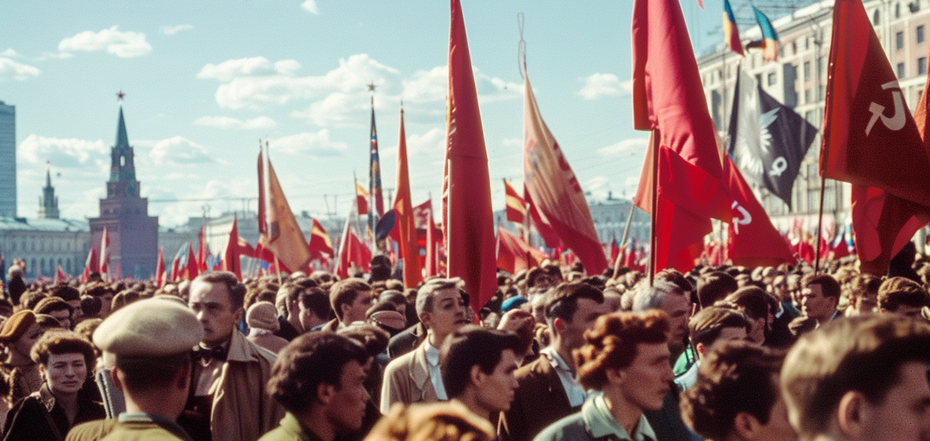Lifestyle
Communist procession and anti-religious concerts: how Easter was "celebrated" in the USSR
The ideology of the Soviet Union was very anti-religious, if not godly. But even the Komsomol zeal could not overcome the centuries-old traditions of celebrating religious festivals such as Christmas or Easter. The USSR authorities had to be very inventive to convince people to abandon their usual holidays.
OBOZ.UA asked what innovations were used in the USSR to force citizens to abandon the traditions and rituals of their ancestors. And why nothing came of it.
The early USSR and the replacement of traditions
Atheism was introduced as the leading state ideology in the USSR from its very foundation in 1922. This included the physical destruction of ancient churches and the murder of priests.
In order to convince people, for whom Easter was an obligatory attribute of spring until recently, to abandon this tradition, they invented rituals that would replace going to church. These were communist religious processions or youth anti-religious rallies and concerts,
In 1930, the Soviet authorities tried to move the day off from Sunday to Thursday during Easter week. They wanted to make the holiday a working day. But this innovation did not take root. Therefore, during the holidays, they began to organize subbotniks-people were driven out to do massive unpaid work, which was sometimes accompanied by a procession carrying an effigy of a priest. The effigy was burned in the end.
The Second World War
When Hitler's Germany attacked the USSR, Stalin's government had to make concessions. The persecution of the church was greatly eased, and in 1942-45, martial law was even allowed to be applied in the territories where martial law was in effect. It went so far that on the eve of the victory over Hitler in May 1945, businesses were given a holiday, and grocery stores began selling Easter cakes.
The Khrushchev Thaw
After Stalin's death, some easing of religious observance was preserved. Now people were not sent to camps for celebrating Easter, but could "only" be fired from their jobs. People slowly celebrated the holiday in the family circle. Cleaning up for Maundy Thursday was passed off as a general cleanup after the winter season, and priests were invited to the homes to bless the Easter meals. Of course, exposing such a celebration could result in punishment-a fine at work or something else. But citizens still took this risk for the sake of their favorite holiday.
The last years of the USSR
In the 1970s and 1980s, the Soviet government again tried to combat the population's religiosity. Most of the priests were recruited by the KGB, the police blocked churches on major holidays, including Easter, and they tried to organize secular entertainment for young people on holidays to distract them from family traditions.
But people already had a whole arsenal of ways to circumvent these prohibitions. For example, they would go to a remote village for a festive service, where no one knew them and the priest could not report to the authorities about those who attended the church for the holiday. Or they would take long and difficult routes to the church to avoid being seen by the police or overly vigilant neighbors.
Despite the severity of the official ban on religious holidays, in the last 20 years of the USSR's existence, echoes of Easter could be seen at the state level. Bakeries produced the Spring Cupcake, and printing houses published themed postcards. And grassroots Communist Party members, who were responsible for making sure that people on the ground did not gather for the celebration, began to fulfill their tasks in a purely formal way, allowing their neighbors and colleagues to spend the day as they wished.
As soon as the Soviet Union came to an end, the tradition of celebrating Easter was immediately revived in Ukraine. It was carefully preserved in villages and quietly observed in families, so it was not difficult to bring the holiday back to the people.
Subscribe to OBOZ.UA channels in Telegram and Viber to keep up with the latest events.



























